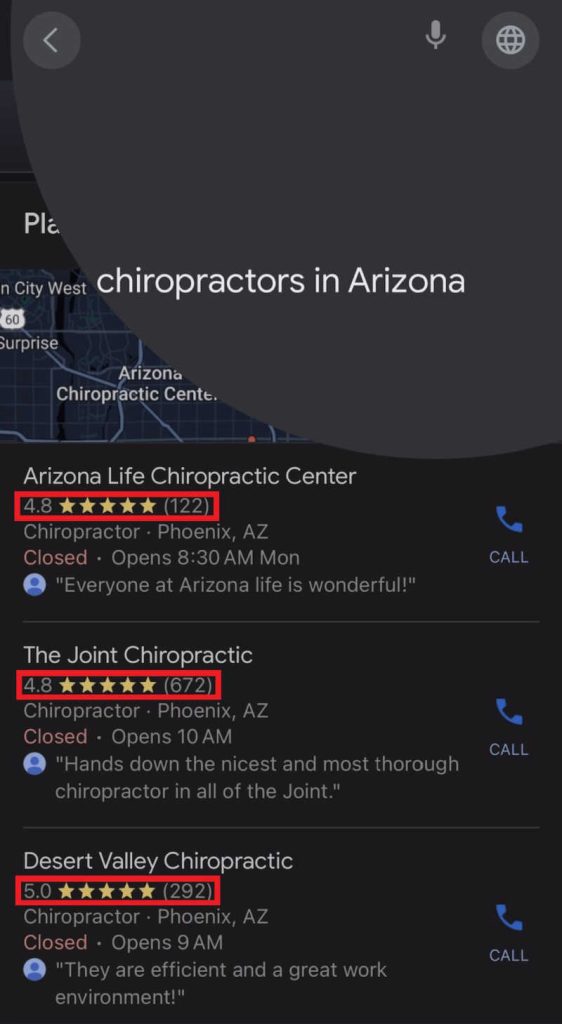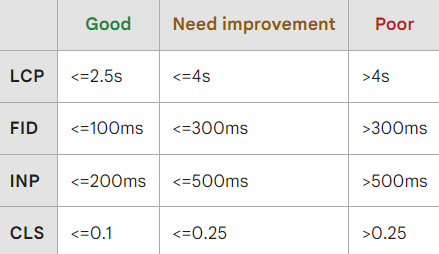How To Optimize For Google Voice Search? 5 Best Tips!
To boost your company’s earnings using the power of Google voice search, focus on ranking within the top three search results. These top spots capture 80% of Google Assistant’s voice search responses, making them crucial for influencing buyer decisions and increasing your business’s visibility. Check the 5 best hints that help you optimize your website for Google voice search!
What is Google Voice Search Optimization?
Google voice search optimization (also known as voice search SEO or VSEO) refers to the comprehensive approach of content optimization and website technical elements to enhance visibility and rankings in voice search results. People use various voice-activated virtual assistants like Google Assistant, Amazon Alexa, Apple Siri, and Microsoft Cortana to find information, products, and services.
Why Optimize for Voice Search?
Upcity statistics say that 50% of American consumers engage in daily voice searches, which naturally help them find relevant answers to queries about the weather, local businesses, term definitions, fact checks, etc.

A diverse spectrum of favored applications for voice search tools. Source: www.upcity.com/experts/consumers-and-voice-search-study/
Voice search SEO (Search Engine Optimization) is helpful, no matter what industry you work in. The owners of service-oriented companies or e-commerce stores should take care of voice search optimization because it improves the UX (User Experience), increasing customer satisfaction.
Moreover, by implementing voice search optimization techniques, you’ll improve your website’s SEO, and consequently, you’ll rank higher than competitors.
In an Overview of Search Quality Rater Guidelines, we can discover that search engines prefer highly optimized voice search websites because they’re compatible with search intent rules, a crucial factor influencing rankings.
Also, remember that people are increasingly using digital voice assistants. The trend is upward, not downward, so you’re behind if you don’t meet voice search users’ expectations.

Digital voice assistants popularity (worldwide statistics). Source: www.semrush.com/blog/voice-search-optimization/
Benefits of Voice Search Optimization
The crucial benefits of voice search optimization:
- Enhanced visibility in Google search results – Voice search optimization increases the likelihood of your website appearing in the coveted featured snippets or voice search results, often sourced for answers by voice assistants;
- Improved local SEO – Many voice searches are regional, as users often look for local businesses or services through voice commands on mobile devices or smart speakers. Optimizing your website for voice search with local keywords and Google Maps information can significantly boost your local search presence;
- Increased traffic from long tail keywords – Voice searches use natural language, resulting in longer, more conversational queries than traditional text-based searches. By targeting these long-tail keywords, you can capture a broader range of search queries and attract more targeted traffic;
- Higher potential for featured snippet placements – Optimizing content to answer specific questions with clear, concise, and authoritative answers can increase the chances of your content being selected for a featured snippet, a prime position in Google search results;
- Enhanced user experience for mobile users – With most voice searches performed on mobile phones, optimizing your website for voice search helps ensure a seamless experience, from the initial search to the final interaction;
- Greater accessibility through natural language processing – Voice search leverages natural language processing to understand and respond to user queries. By optimizing for voice search, you make your content more accessible to users who prefer voice search or have disabilities that make typing difficult;
- Competitive advantage in digital marketing – As voice search differs from traditional text search in terms of intent and query structure, adopting a voice search optimization strategy can give you a competitive edge in reaching potential customers through this growing search medium;
- Fosters a connection with users of smart devices – Smart speakers and other smart devices are becoming household staples. Optimizing for voice search enables businesses to connect with users through these devices, offering a direct line to engage with potential customers in their everyday environments;
- Supports a comprehensive SEO strategy – Integrating voice search optimization into your overall SEO strategy helps ensure a holistic approach to search engine visibility. This includes utilizing structured data, creating an FAQ page to target question keywords, and focusing on the natural language queries that help search engines understand and rank content more effectively;
- Provides valuable insights into customer behavior – Voice search presents an opportunity to gain valuable insights into how your customers use voice search to interact with your business. This can inform various aspects of your digital marketing and product development strategies.
Voice Search SEO – How to Improve? 5 Best Tips
To improve voice search SEO:
1. Use long-tail SEO keywords and conversational language
Long-tail SEO keywords dominate the voice search results. According to the NewsXtend research, 82% of searchers use three or more words on Google through voice search. In that case, “near me” queries about local businesses are the most popular.

An example of voice search results for the keyword “The best groomers in New York.”
While preparing your content distribution strategy for voice search queries, go to Ubersuggest and choose Keyword Research → Keyword Ideas.

Keyword ideas in the Ubersuggest.
Then, pick the most appropriate queries for your company and find relevant long-tail keywords, which can be voice search keywords in a conversational tone.

Conversational keywords that match perfectly the voice search optimization strategy for “electric bikes adults.”
If you decide to create new website content for local voice search queries (or global voice search results), pay special attention to:
- Writing for humans – your potential customers use voice search as if they were talking. So, you must prepare completely natural content in a conversational tone. Don’t avoid technical words at all costs; however, bet firstly on simple and intuitive vocabulary;
- Taking comprehensive keyword research – naturality is one thing, but you must still implement relevant long-tail SEO questions and keywords to your content. Without KWs exploration, your website won’t be fully optimized. Try to implement the most voice search keywords in the proper tone.
2. Optimize Google Business Profile for voice search local queries
58% of smartphone users in the United States utilize voice search to seek information about products or services. So, apart from creating local content for the website, get involved in Google My Business Profile optimization.
If you want to appear in the local 3-pack for local voice queries, get more 4- and 5-star ratings.

The voice search query for local chiropractors in Arizona.
As you can see, local 3-pack for voice keyword “chiropractors in Arizona” appears only for 4- and 5-star companies. The more good reviews you have, the higher the probability that Google trusts you and displays your local enterprise in specific voice search queries.
Reviews in local SEO are a must-have in all cases, also while optimizing SGE Google.
Other vital issues regarding local voice search technology in the Google Business Profile context:
- Enhance your profile’s completeness and accuracy – Voice searches often rely on up-to-date information to answer queries directly from the search results or featured snippets. Incorporate schema markup to structure your data, making it easier for search engines to interpret and display in voice search results; this step is crucial for achieving prominence in local SEO and appearing in voice search queries on Google Assistant and other voice assistants;
- Leverage Google posts within your profile – Utilizing Google Posts allows businesses to publish updates, offers, and events directly on their Google Business Profile. Search engines can index this content and appear in both traditional and voice search results. Crafting posts with voice search keywords (long-tail phrases) that your target audience might use can enhance your visibility in local search results, making your business more accessible to users conducting voice searches on smart speakers and mobile devices;
- Optimize for “Near Me” voice searches – Voice search queries often include “near me” phrases, reflecting users’ expectations for immediate, local results. Include location-based keywords and phrases in your profile and website content to capture this audience. Local SEO strategies, such as optimizing for local search and ensuring your business appears in local search results, are essential. This includes maintaining a consistent NAP (Name, Address, Phone Number) across your website and other platforms to boost your visibility in “near me” voice search results;
- Respond to customer reviews – Engaging with customer reviews on your Google Business Profile demonstrates responsiveness and can influence your ranking in search results. Positive reviews can enhance your business’s reputation in voice search results, as algorithms favor highly rated establishments when answering voice queries. Regularly responding to positive and negative reviews can improve your profile’s visibility and appeal to users of voice search devices;
- Implement booking and appointment links – For local businesses, incorporating booking and appointment links into your Google Business Profile can streamline the process for potential customers using voice search. This feature enhances user experience and supports voice search optimization by making it easier for voice assistants to facilitate actions directly from voice search results. It aligns with the convenience sought by voice search users, particularly those using mobile devices for quick searches;
- Stay consistent across platforms – Consistency in business information and messaging, including your Google Business Profile, website, and social media, is vital for voice search optimization. Discrepancies can confuse search engines and users, negatively affecting your search rankings. A unified SEO strategy that considers voice search keywords, page speed, and content relevance can significantly improve your standing in both traditional search engine results and voice search queries, ensuring a cohesive voice search strategy across all user touchpoints.
To learn more, we recommend our article about optimizing Google Business Profile.
3. Implement schema markup
By implementing schema markup, you can enhance the visibility of your website for voice searches. Then, your site is more likely to show up for “How-to” queries and local service-oriented results (not only on Google but also on other search engines like Yahoo!, DuckDuckGo, and Bing).
“How-to” queries:

Schema markup – blog post details.
Local service-oriented results:

Business elements influence UX (User Experience) based on Schema Google.
Structured data (including schema markup and rich snippets) turns out to be one of the most essential SEO elements that help optimize your website within SXO standards. We recommend implementing it while you optimize for voice search, local queries, and global results.
Check out how to utilize schema markup & structured data for SEO!
4. Create a mobile-friendly website
That’s obviously from years. The websites created with a mobile-first SEO approach are more friendly for Google’s crawlers and users than non-responsive websites. In 2024, more than 60% of searches are presently carried out using mobile devices.
Moreover, remember that every month, one billion voice searches are conducted through mobile devices and voice-enabled search tools. So, all website owners should pay attention to mobile optimization. Otherwise, potential customers will visit competitors’ websites.

Voice search statistics prediction for 2024 & 2025. Source: www.synup.com/voice-search-statistics
5. Optimize the website for high-performance
It’s no mystery. Page speed is among the 200 Google ranking factors influencing SXO (SEO + UX). Consequently, having a high-performance website gives you greater chances of obtaining high positions in the SERPs (Search Engine Results Pages).
You may rank high with a low-speed website on voice searches, but it’s nonsense because potential consumers will quickly leave your site. Instead of maximizing the conversion rate, they’ll make your bounce rate higher.
How to boost website performance and get satisfying positions for voice searches?
- Check your website’s performance in Google PageSpeed Insights, GTMetrix, or WebPageTest;
- Look at recommendations from the given tool;
- Additionally, improve Core Web Vitals with Search Console report.

Core Web Vitals recommendations. Source: www.support.google.com/webmasters/answer/9205520?hl=en
As digital marketing specialists, we suggest aiming for 2–3 seconds overall page speed.
Is Voice Search Optimization Important for SEO?
As potential customers increasingly perform voice searches through smart speakers, mobile phones, and voice assistant-equipped devices, the imperative to optimize your website for these queries becomes clear.
Voice search differs significantly from traditional text-based searches; it typically involves natural, conversational queries, requiring a nuanced SEO approach. This shift presents unique opportunities, especially for local businesses, as voice searches tend to prioritize local results, making features like Google Maps integration and structured data crucial for visibility.
Moreover, voice search helps bridge the gap between businesses and users by facilitating a more intuitive and efficient search experience. A few best practices are recommended to effectively tap into this burgeoning market, including creating an FAQ page to answer common queries directly, employing structured data to help search engines understand your content, and optimizing for natural language and voice commands. Incorporating voice search optimization into your digital marketing strategy enhances your visibility to voice search devices. It connects you with potential customers more immediately and conversationally, amplifying your online presence and engagement.
Voice Search Marketing – Our Predictions for the Future
As we look towards the future, voice search marketing is poised to redefine the SEO landscape, transitioning from traditional text-based search to more dynamic, natural language interactions. With many voice searches initiated on smart devices, optimizing for voice search becomes crucial for capturing the attention of mobile users right from their initial search. This shift necessitates a focus on natural language processing, allowing search engines to understand better and process the conversational nuances of voice queries.
The trend away from short-tail keywords towards more detailed, question-based keywords highlights the changing nature of search queries. As a result, content strategies must evolve to target these question keywords, providing direct, relevant answers that voice search devices can easily retrieve. This approach helps search engines index content more effectively and aligns with the user’s intent more closely, offering valuable insights into consumer behavior.
Moreover, the rise of voice optimization emphasizes the importance of mobile searches, as a significant portion of voice searches are performed on the go. To stay ahead, businesses must refine their digital marketing strategies, ensuring their online presence is optimized for both the accuracy and context of voice searches. By adapting to these changes, marketers can leverage the unique opportunities presented by voice search, enhancing user engagement and driving the future of search marketing.
Summary
Voice search optimization aims for a comprehensive SXO (Search Experience Optimization). You should implement all crucial SEO, UX, and UI techniques to boost your website for voice search results. If your keywords, both broad and specific, rank in Google’s TOP 10 for standard searches, you are likely to achieve similar rankings in voice search marketing.
There’s no separate method for ranking in voice results. All content and technical SEO aspects mean a lot.
From our team’s perspective, the first step to optimize for voice search is to implement long-tail keywords for your SEO strategy. The second is taking care of your Google Business Profile; the rest is improving your website’s technical SEO level.
Are you seeking cost-effective voice search optimization services? Fill out the form or contact us at 888-506-2183. We’ll create an individual voice-friendly SEO strategy and execute it.
Google Voice Search – FAQ
What are the most common questions and answers about Google Voice searches?
- How to optimize for voice search?
To optimize for voice search, focus on natural language and question-based queries that people will likely use in conversation. Incorporate these phrases into your content, especially in headings and titles, to align with how voice searches are performed. Ensure your website is mobile-friendly and fast-loading, as many voice searches are done on mobile devices. Additionally, include structured data to help search engines understand the context of your content, making it easier to feature in a voice search result.
- How does voice search optimization work?
Voice search optimization works by tailoring content to match the conversational tone and query structure of voice searches. This involves using relevant keywords that reflect natural speech patterns rather than traditional typed searches. Optimizing for voice search also means focusing on local SEO strategies for local business visibility, as many voice searches are regional. Enhancing your site’s loading speed and ensuring it is compatible with smart speakers and mobile devices is crucial, as these technologies frequently access voice search capabilities.
- How to optimize content for voice search with long-tail SEO queries?
Optimizing content for voice search with long-tail SEO queries involves integrating more specific, conversational phrases that users are likely to speak rather than type. These long-tail keywords should mimic natural speech and be relevant to your content and business. Incorporating FAQs on your website that answer common questions directly can effectively capture these long-tail queries. Focusing on local keywords can also help make your content voice search-friendly, especially for local businesses looking to capture nearby customers.
- What are the benefits of voice search optimization?
Voice search optimization can significantly enhance user experience by providing quicker and more accurate answers to queries, which is essential for voice search today. It improves your visibility in voice search results, potentially increasing traffic and engagement with your site. Optimizing for voice search also positions your business favorably for local searches, making it easier for local customers to find you. Additionally, being voice search-friendly can give you a competitive edge, especially as the use of smart speakers and voice-activated devices continues to rise.
- How much should I pay for voice search optimization services?
The cost of voice search optimization services varies widely depending on your project’s scope, website’s complexity, and industry’s competitiveness. Typically, agencies offer packages or bespoke pricing based on a detailed analysis of your needs. Investing in a comprehensive SEO strategy that includes voice search optimization is crucial, so it’s essential to consider the value of enhanced visibility and traffic against the cost. Seeking quotes from several providers can help you understand the market rate and what services you can expect for your budget.
- How important is voice search marketing in SEO?
Voice search marketing has become increasingly important in SEO as the prevalence of voice-activated devices and smart speakers grows. It represents a shift towards more conversational, natural language search queries, requiring businesses to adapt their SEO strategies to remain visible in this evolving landscape. Voice search optimization can improve search results rankings, particularly for local businesses and those optimizing for long-tail, conversational keywords. As voice search becomes more integrated into consumer habits, its importance in a comprehensive SEO strategy cannot be overstated.
- What voice search engines are available?
Several voice search engines are available today, the most prominent being Google Voice Search, Apple’s Siri, Amazon’s Alexa, and Microsoft’s Cortana. These platforms are integrated into various devices, including smartphones, tablets, and smart speakers, making voice search accessible in numerous contexts. Each engine uses its proprietary algorithms to interpret and respond to user queries, emphasizing the importance of optimizing content to be voice search-friendly across different platforms. Businesses should consider how their target audience uses these technologies to maximize their visibility in voice search results.

